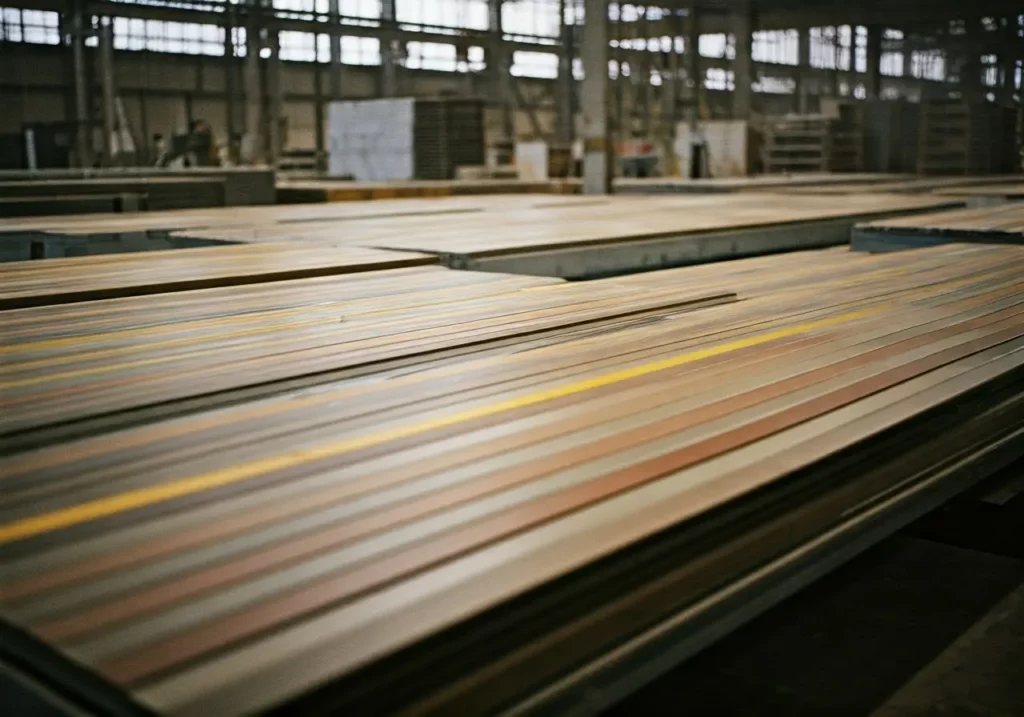When we think about home renovation or interior design, tiles often play a crucial role. But have you ever wondered how tile manufacturers ensure their products meet quality standards? In this FAQ blog, we’ll explore the methods and processes tile manufacturers use to guarantee top-notch quality for every piece they produce.
Choosing High-Quality Raw Materials
The first step in ensuring high-quality tiles is selecting premium raw materials. Manufacturers source ceramics, clay, talc, and other essential components with strict specifications to guarantee a solid foundation for their products.
By focusing on responsibly sourced materials such as recycled glass and sustainably harvested clay, manufacturers not only ensure high quality but also support environmental sustainability. This approach is also detailed in our blog on How Tile Manufacturers Ensure Quality and Sustainability.
Cutting-edge technology and meticulous selection ensure that raw materials used in tile production meet the industry’s highest standards, securing the tile’s performance and durability.
Implementing Precision in Production Techniques
Advanced production techniques, such as hydraulic pressing and high-temperature kilning, ensure that tiles are both durable and perfectly shaped. These processes are meticulously monitored to maintain consistent quality.
Modern manufacturing plants often deploy automation and precision cutting technologies to enhance the efficiency and accuracy of tile production. This not only boosts productivity but ensures every tile meets exact dimensions and quality benchmarks.
Rapid Single Firing (RSF) is a technique increasingly used to enhance tile strength and minimize imperfections, offering a balance between durability and cost-efficiency.
Conducting Rigorous Quality Control Tests
Quality control is critical in tile manufacturing. Tests for water absorption, scratch resistance, and size accuracy are just a few measures done to ensure each tile meets industry standards.
The detailed inspection process includes evaluating tiles for uniformity in size, color, and finish. The slightest anomaly in these aspects can lead to significant quality deviations during installation.
Manufacturers typically engage third-party evaluators like VIS for unbiased assessments of their quality management system, further guaranteeing excellence in the final product.
An essential inspection is the PEI rating system, which helps manufacturers categorize ceramic and porcelain tiles based on abrasion resistance, ensuring that appropriate tiles are designated for their optimal use cases.
Adhering to Industry Standards and Certifications
Compliance with industry standards and certifications like ISO and ASTM are non-negotiable for reputable manufacturers. This adherence guarantees consumers that the tiles they receive are reliable and safe.
Meeting certifications such as LEED not only assures quality but also promotes eco-friendly manufacturing practices, enhancing the tile’s value proposition both professionally and ethically.
Staying updated with international standards also enables manufacturers to participate in global markets, ensuring their products meet varying regulatory and performance expectations worldwide.
Bringing It All Together: The Quality Journey of Tiles
Ensuring product quality in tile manufacturing involves a combination of selecting quality raw materials, employing precise production techniques, and implementing rigorous quality control measures. By following these steps, manufacturers can deliver products that meet customer expectations and industry standards, providing durable and beautiful tiles for any project. For more insights into quality assessment, explore our detailed guide on how porcelain tile quality is measured.


